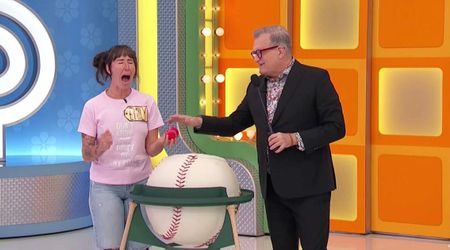Russian Oligarch Loses Legal Battle With Sotheby's In Art Fraud Case Involving 'Salvator Mundi'

Russian oligarch and billionaire art collector Dmitry Rybolovlev lost his legal fight with Sotheby’s after the US jury ruled in favor of the auction house. In the lawsuit, the businessman claimed the auction house was complicit in an alleged fraud where a Swiss art dealer swindled him of $1 billion while assembling a trove of art that included "Salvator Mundi", a depiction of Christ attributed to Leonardo da Vinci.

Rybolovlev alleged that Sotheby's allowed art dealer Yves Bouvier to overcharge him by imposing significant markups on acquired works, resulting in a loss of over $160 million. Rybolovlev had previously sued Bouvier and their long-standing battle was settled, as per The Guardian.
However, Rybolovlev continued his legal battle with the auction house which has now concluded with Sotheby’s win. As per the report, Sotheby's maintained that it knew nothing of Bouvier’s alleged misconduct and it followed all legal, financial, and industry standards while working with Rybolovlev.
Sotheby's defeats Russian oligarch in art fraud case https://t.co/RetV15IzSh pic.twitter.com/5BaGa5brt9
— Reuters (@Reuters) January 30, 2024
Who is Dmitry Rybolovlev?
Rybolovlev is a Russian businessman with an estimated net worth of $6.4 billion, per Forbes. He built his fortune with Uralkali, Russia's largest producer of potassium fertilizers. He later sold his stake in the company for $6.5 billion in 2010 and he currently does not have any business in Russia, as per reports.
Former sporting director of the European football club AS Monaco, Rybolovlev was elected as a board member of the Ligue de Football Professionnel's (LFP) which runs two major football leagues in France in 2022.

What was the case involving Rybolovlev and Sotheby’s?
The case is one of the most high-profile art fraud disputes in recent years. It started when Rybolovlev had previously sued Bouvier, who helped him buy 38 pieces of art for $2 billion. Their long-running dispute was subject to lawsuits in multiple jurisdictions.
Rybolovlev spent about the amount between 2002 and 2014 to build a prime art collection featuring works by such giants as Picasso, Rodin, Modigliani, Klimt, Magritte, and Leonardo da Vinci, working with Yves Bouvier as his dealer.
He testified that he trusted Bouvier “like family,” but alleged that he hugely padded the prices of the artwork while pocketing a 2% commission.
Rybolovlev claimed that he was swindled out of $1 billion on the artworks including “Salvator Mundi,” which Bouvier bought for $80 million before selling it on to his then client for $127.5 million, as per CNN.
Later, Rybolovlev auctioned off the artwork for a record $450.3 million in 2017, making it the most expensive artwork sold at an auction.
It's been a year since Leonardo da Vinci’s painting “Salvator Mundi” was sold for a record $450 million, shattering the world record for the most expensive work of art ever sold at an auction.
— VICE News (@VICENews) November 20, 2018
We got a private viewing of the painting to find out what made it so pricey. pic.twitter.com/iGkUQhxHKd
However, he maintained his allegations against Bouvier. The two reached an out-of-court settlement last year after their cases in Switzerland, Singapore, Monaco, and Hong Kong were shut down.
Bouvier maintained he did nothing wrong after the confidential settlement was done.
Meanwhile, in a different lawsuit, Rybolovlev’s accused Sotheby’s of working hand in hand with Bouvier. He claimed that the auction house knew how much Bouvier had originally paid for various artworks and helped inflate his prices.
What was the verdict?
Jurors in Manhattan federal court reached the verdict in less than a day. US District Judge Jesse Furman dismissed 11 of the 15 claims made by Rybolovlev including art from Pablo Picasso, Auguste Rodin, and Henri de Toulouse-Lautrec.
The civil fraud trial between Sotheby’s and the Russian billionaire Dmitry Rybolovlev occupied Judge Jesse Furman’s Manhattan district courtroom for three weeks, but the jurors needed less than one full day to reach their verdict https://t.co/Yuab3E7Q44
— The Art Newspaper (@TheArtNewspaper) January 30, 2024
However, Rybolovlev was allowed to sue over “Salvator Mundi” even though his ownership had proven unusually profitable. The jury ultimately ruled in favor of Sotheby’s, dismissing all of Rybolovlev’s claims. Sotheby’s told CNN that the verdict reaffirmed its commitment to the highest standards of integrity, ethics, and professionalism, and claimed that there was a lack of evidence that the auction house had cheated Rybolovlev.
On the other hand, Daniel Kornstein, a lawyer for Rybolovlev, said that despite the ruling, they achieved their goal of shining a light on the lack of transparency in the art market.



















